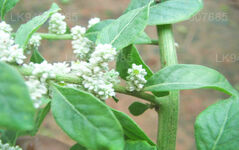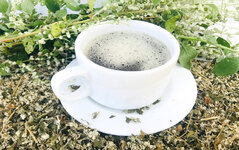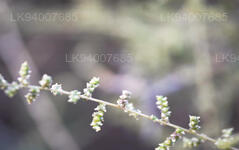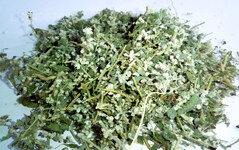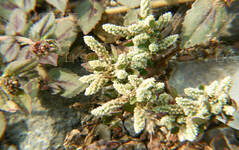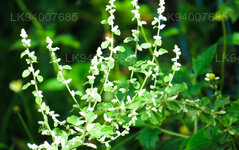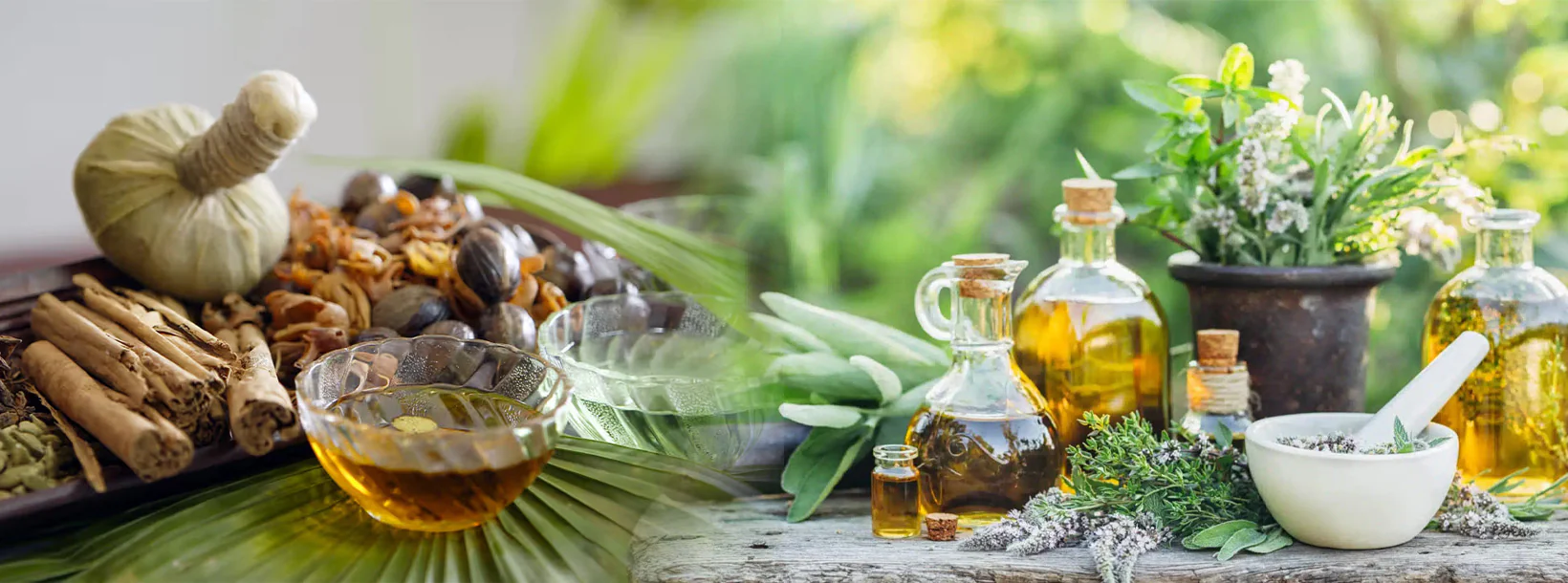
Ayurvedic Medicinal Plants
Sri Lanka's Ayurvedic tradition features a rich variety of medicinal plants used for centuries. Sri Lanka has a rich tradition of Ayurvedic medicine, drawing on its indigenous knowledge and a variety of medicinal plants. Here are some notable Ayurvedic medicinal plants found in Sri Lanka:
Aerva lanata (Polpala; පොල්පලා)
Aerva lanata, the mountain knotgrass, is a woody, prostrate or succulent, perennial herb in the family Amaranthaceae, native to Asia, Africa. It has been included as occurring in Australia by the US government, but it is not recognised as occurring in Australia by any Australian state herbarium. The plant sometimes flowers in the first year.
Aerva lanata is a common weed which grows wild everywhere in the plains of India. The root has a camphor-like aroma. The dried flowers which look like soft spikes, are sold under the commercial names Buikallan and Boor. It is one of the plants included in Dasapushpam, the ten sacred flowers of Kerala.
Although the original homeland of the Polpala (Aerva lanata) is known as the Great Islands of Africa, this valuable plant thrives throughout Asia and Australia and has a number of amazingly indistinguishable properties. Polpala has been used in many cultures for thousands of years as a treatment for kidney and urinary tract infections because of its diuretic and diuretic properties, which increase the filtration properties of the kidneys and kill germs.
Polpala is not only used for kidney and urinary tract infections, but also for people with urinary stones. In the past, a remedy for many aches and pains was to boil it in medicine and apply it on the scalp and boil it in a steamer.
Due to the anti-parasite properties of Polpala, It can be used as a treatment for worms in children and typhoid fever as well as to reduce malaria. Polpala is an effective antidote and is widely used to treat gonorrhea.
Laboratory research has shown that Polpala can be activated against a wide range of antimicrobial organisms, including Staphylococcus, Klebsiella, E. coli, Shigella, and many other bacterial and fungal algae. It also helps cool the body and can prevent allergies due to its antihistamine chemistry.
Frequent use can also help prevent diabetes and heart disease due to its ability to lower blood sugar and alcohol. In addition, Polpala has the ability to destroy cancer cells, the body's immune system and the ability to repair the liver membranes.
Frequent subject to laboratory research around the world, this amazing plant amazes everyday researchers with its indistinguishable properties. According to the American Institute of Pharmacological Research, these properties are due to the biochemical diversity of the Polpala plant.
How to use
- Before flowering, the young Polpala plant is mixed with cowpea or jackfruit seeds as a concoction.
- Immature Polpala leaves with red union, mackerel, lime and coconut as a raw delicious sambol or jam.
- As a stir-fry.
- Polpala leaves are a great source of nutrients for young infants less than a year old when they are fed a mix of solid red union and milk.
- Polpala porridge made from coconut milk and rice with leaf juice is a very tasty breakfast substitute.
- A delicious herbal drink that quenches thirst by boiling all the parts of the dried or raw Polpala plant.
-

Ankenda
Acronychia pedunculata -

Beli
Aegle marmelos -

Bakmi
Nauclea orientalis -

Bangwel-geta
Coscinium fenestratum -

Bukinda /Walkinda
Tinospora malabarica -

Bu- kobbe
Allophylus cobbe -

Dodan –kaha
Memecylon capitellatum -

Diyamitta
Cissampelos pareira -

Embul dodan
Citrus aurantium -

Gas nidikumba
Biophytun reinward -

Hintambala
Carmona microphylla -

Goraka
Garcinia cambogia -

Karapincha
Murraya koenigii -

Keppetiya
Croton laccifer -

Kohomba
Azadirachta indica -

Kotikan-bevila
Sida alba -

Kudumiris (Forest paper)
Toddlia asiatica -

Kurundu
Cinnamomum zeylanicum -

Mahakaramba
Carissa carandas -

Muna mal
Mimusops elengi -

Nelli
Phyltanthus emblica -

Puwak
Areca catechu -

Rath mal
Ixora coccinea -

Eepatta / Ruk - anguna
Alangium salviifolium -

Siyambala
Tamarindus indica -

Walangasal / Wal-embilla
Embelia ribes -

Wal Karapincha
Micromelum ceylanicum -

Welangiriya
Paramignya monophylla
Ayurvedic and Herbal
-
Siddhalepa Ayurveda Herbal Balm
Regular price From £1.00 GBPRegular priceUnit price / per£1.00 GBPSale price From £1.00 GBP -
Lakpura Wildcrafted Soursop (Guanabana, Graviola, Guyabano) Dehydrated Leaves Whole
Regular price From £3.00 GBPRegular priceUnit price / per£3.00 GBPSale price From £3.00 GBP -
Link Swastha Triphala
Regular price From £2.00 GBPRegular priceUnit price / per£3.00 GBPSale price From £2.00 GBPSale -
Sethsuwa Pranajeewa Oil
Regular price From £3.00 GBPRegular priceUnit price / per£4.00 GBPSale price From £3.00 GBPSale

